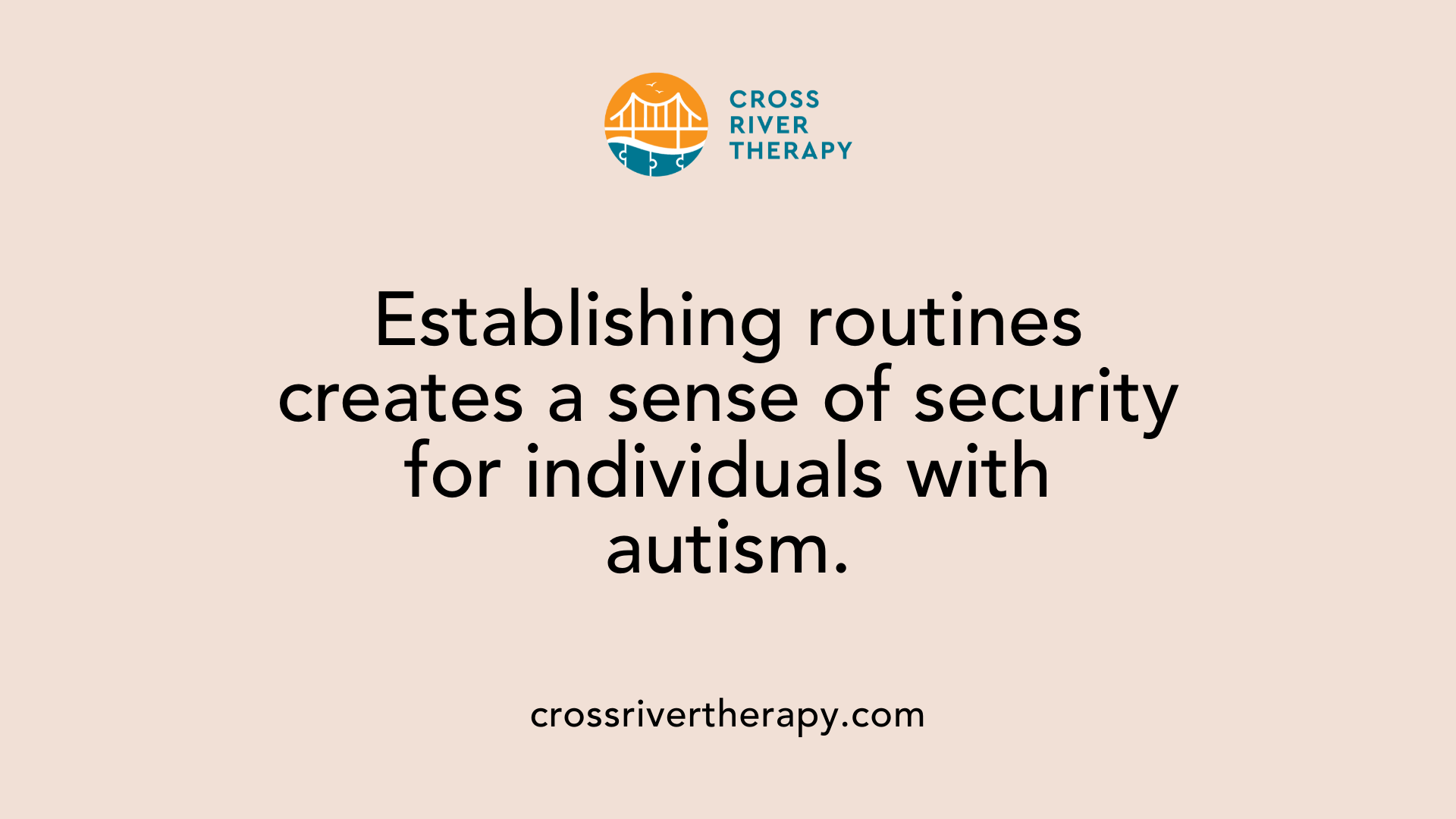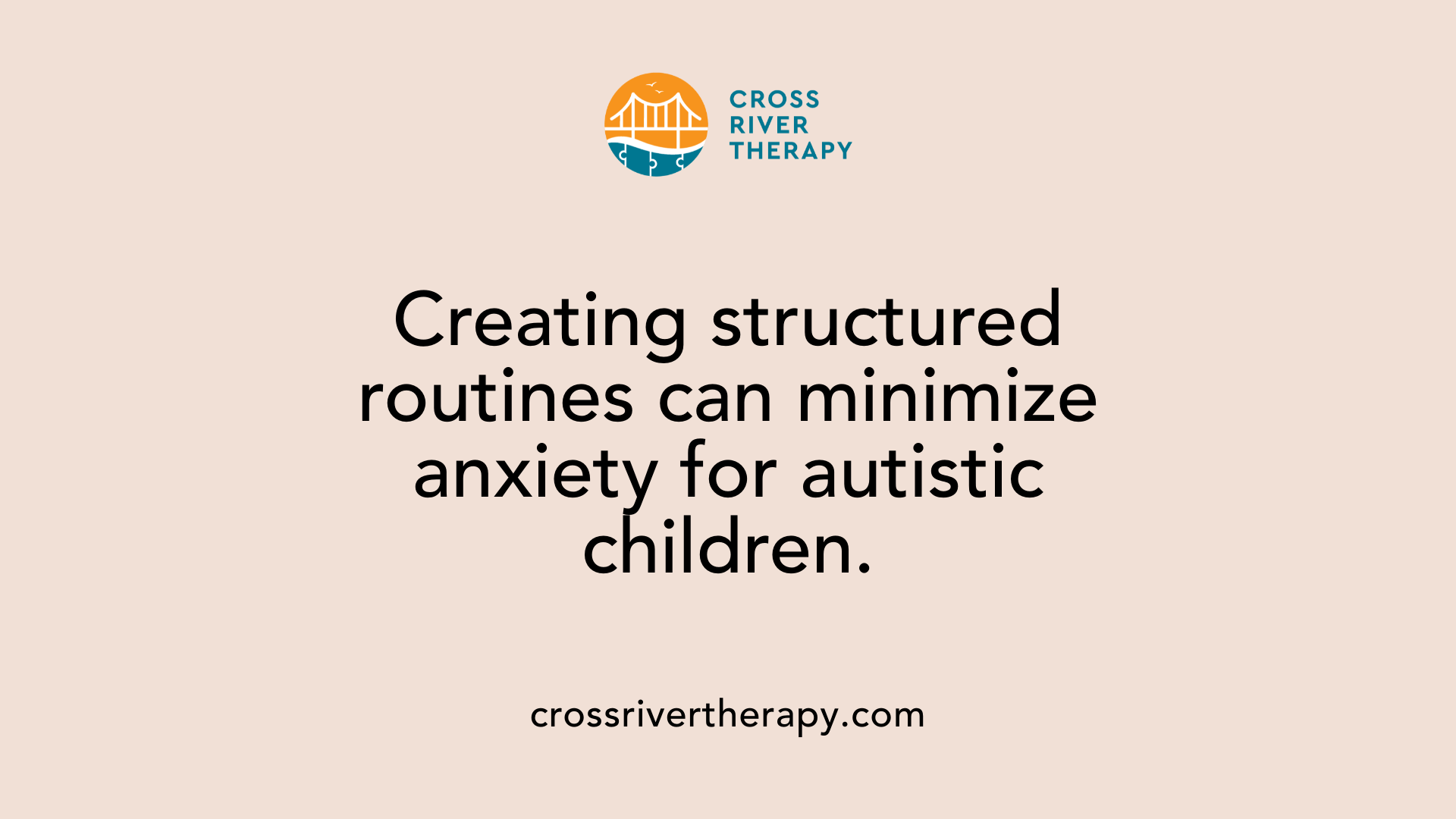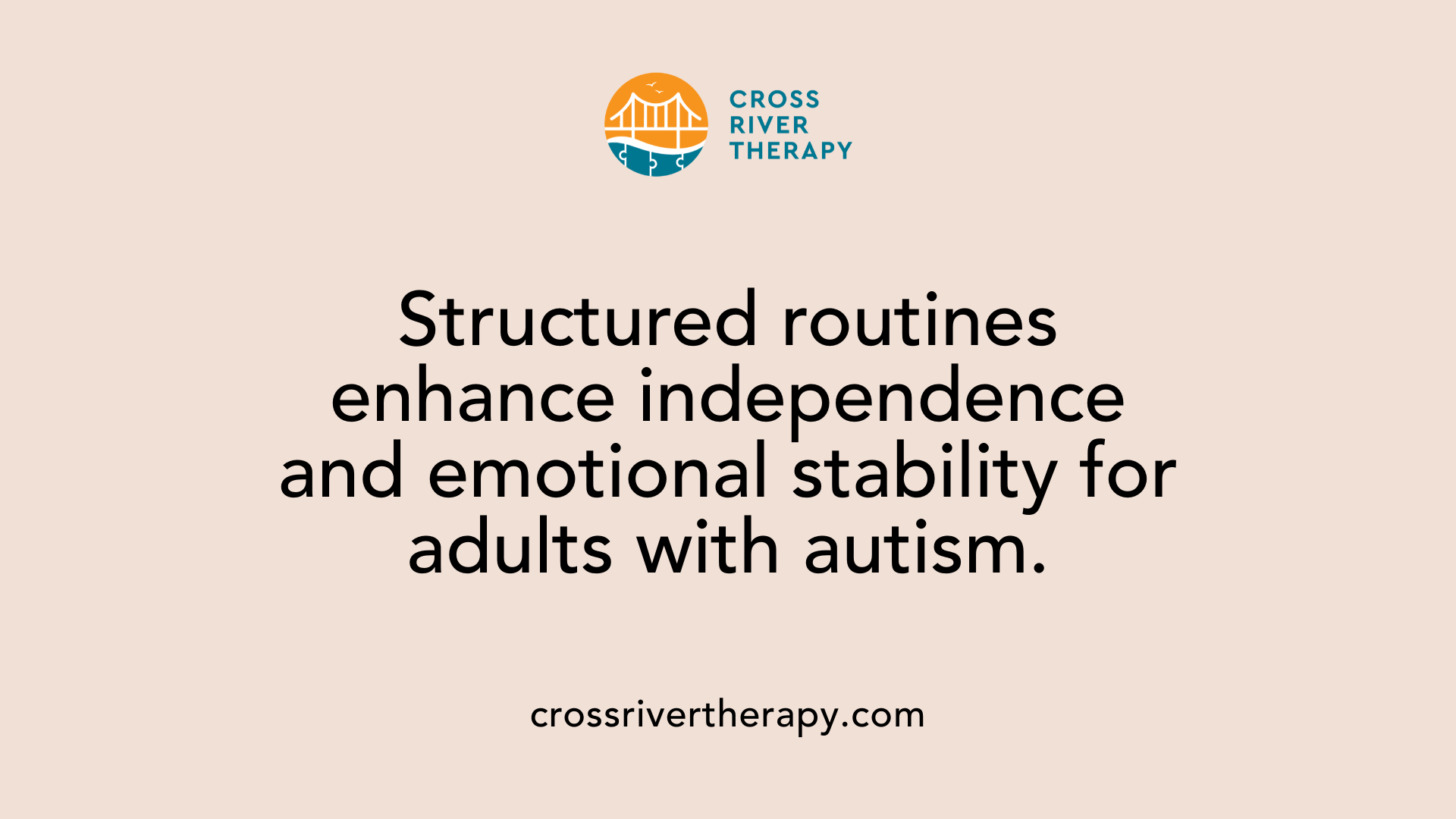Developing Routines for Autism
Empowering Stability: Crafting Autism-Friendly Routines
Understanding the Role of Routines in Autism
For individuals with Autism Spectrum Disorder (ASD), the daily world can feel unpredictable and overwhelming. Establishing routines serves as an essential tool to foster stability, reduce anxiety, and improve well-being. This narrative unfolds the profound impact of routines on children and adults with autism, providing practical insights and answering critical questions on effective routine development.
The Security of Consistent Routines

How can establishing routines help individuals with autism feel more secure?
Establishing routines plays a crucial role in helping individuals with autism feel more secure. Routines create a structured and predictable environment, which diminishes anxiety often associated with the unpredictability of daily life.
Consistent application of rules and routines allows individuals with autism to engage more successfully in various activities, significantly reducing the occurrence of problematic behaviors. For example, using clear and concise rules taught through direct instruction and modeling enhances their understanding and adherence. This fosters a stronger sense of safety and stability.
Visual aids such as activity schedules not only reinforce comprehension but also aid in generalizing learned behaviors across different settings. When children can see what comes next in their day, they are better prepared and less anxious about transitions.
Moreover, the flexibility within established routines is essential. Regular monitoring and adaptation to individual needs ensure that these routines support autonomy and independence, ultimately enhancing social interactions and overall well-being for individuals with autism.
Incorporating feedback from the child on their routines can further enhance engagement, allowing adjustments that respect their preferences while maintaining the predictability that provides security.
Crafting Effective Routines for Children with Autism

How can parents create a routine for an autistic child?
Creating a routine for an autistic child involves prioritizing structure and predictability. These elements are essential for minimizing anxiety and helping children grasp what to expect throughout their day. Parents can start by identifying key daily activities that require routines, such as bedtime, mealtime, and hygiene tasks.
Steps to Create a Routine:
The Use of Visual Aids
Visual aids play a significant role in helping children with autism comprehend and follow their routines effectively.
Benefits of Visual Aids:
In summary, effectively crafting routines involves clear structure, visual aids for understanding, and respecting individual needs. Through these methods, families can create a supportive and reassuring environment for their autistic children.
Incorporating Healthy Habits into Routines
What are some healthy habits that can be established for individuals with autism?
Establishing healthy habits is crucial for children with autism, as it contributes to their overall well-being and development. Some effective habits include:
To help implement these habits, consider the following strategies:
By embedding healthy habits into daily routines, children with autism can develop a sense of ownership and commitment, creating a positive feedback loop that supports their growth.
Optimal Parenting Styles for Autistic Children

What is the best parenting style for children with autism?
The best parenting style for children with autism is typically authoritative parenting. This approach combines nurturing and love with clear boundaries, which is vital for fostering a stable environment. Children with autism thrive on routine, predictability, and consistency, making this style particularly beneficial.
The Importance of Stability Through Parenting Style
Both parents should be involved in their child's life, as their active participation significantly influences the child's well-being. When parents work together to create structured routines, it enhances the child's sense of safety and expectation, reducing anxiety that can arise from unpredictability.
Involvement from both parents also counters the disruptions that chaotic family dynamics can cause. This is especially crucial during emotionally charged situations, such as legal proceedings, where understanding and compassion are necessary. A supportive atmosphere enables all family members to navigate the emotional processes together, creating better coping mechanisms for the child and reinforcing the stability they need to thrive.
Ultimately, employing an authoritative parenting style can lead to improved emotional health and development for children on the autism spectrum.
Handling Routine Disruptions with Ease

How can parents manage disruptions in the routines of autistic children?
Parents can effectively manage disruptions in the routines of autistic children by focusing on consistency and preparation. It is essential to maintain a structured environment while preparing children in advance for any upcoming changes to their routine. Using visual schedules is one of the most effective methods for this purpose, as these schedules visually outline daily activities and transitions.
Customizing these schedules with familiar images makes tasks clearer and can significantly reduce anxiety. Breaking down activities into simple, manageable steps helps children feel more in control and less overwhelmed, facilitating a smoother transition during routine changes.
Strategies for coping
In addition, positive reinforcement plays a crucial role in encouraging adherence to these established routines. Praising or rewarding children for successfully following their schedules can foster a sense of accomplishment and motivate them toward independence.
Introducing changes gradually is another important strategy. This allows children to adjust without excessive stress. Utilizing coping strategies such as deep breathing exercises or sensory toys can further assist children in navigating through disruptions. These approaches empower children by giving them tools to manage their anxiety, ultimately promoting emotional well-being and resilience.
The Importance of Structured Routines in Adulthood

Why is it important for adults with autism to have a structured routine?
Having a structured routine is crucial for adults with autism, as it offers predictability and stability in an often unpredictable world. This structure can significantly reduce cognitive load and anxiety, enabling individuals to tackle daily tasks more effortlessly and boosting their executive functioning skills.
When adults have a say in establishing their routines, it promotes a sense of autonomy and ownership. This not only enhances motivation but also fosters confidence in their ability to navigate their daily lives. Without these routines, any disruptions can lead to distress, underlining the importance of maintaining consistent schedules that are vital for emotional stability.
Enhancing Independence and Stability
Incorporating visual schedules and reflection opportunities into routines is beneficial. It allows for continual adjustments that cater to evolving needs, ensuring that the routines remain effective.
AspectBenefitsSuggestionsPredictabilityReduces anxiety and enhances comfort during everyday tasks.Use visual timetablesAutonomyInvolves the individual in creating their schedule, fostering ownership.Discuss routine options togetherEmotional StabilityBuilds a safe environment that encourages self-regulation.Monitor and adjust based on feedbackRoutine BenefitsEnhances overall functioning, making it easier to manage transitions.Integrate fun activities with essentials
Overall, structured routines are essential in enhancing the quality of life for adults with autism, fostering independence while providing a sense of security.
Routines and Special Interests: A Synergistic Approach
Integrating Special Interests
Children with autism often have unique interests that can be leveraged to enhance their daily routines. By incorporating these special interests into established schedules, caregivers can create engaging learning opportunities that foster motivation. For example, if a child has an interest in dinosaurs, activities relating to dinosaurs can be sprinkled throughout their day, making routines more appealing.
Enhancing Routines and Learning
Utilizing special interests not only enriches routines but also helps cultivate essential life skills. For instance, if a child enjoys a particular cartoon character, visual schedules or social stories involving that character can improve understanding and compliance. Moreover, when children feel connected to the content of their routines, it promotes engagement and reduces anxiety.
Involving children in choosing activities centered on their interests empowers them, fostering a sense of ownership and making transitions smoother. Thus, integrating special interests into daily routines not only builds a structured environment but also enhances learning and emotional well-being, ultimately benefiting both the child and the caregiver.
Building a Better Future Through Routines
Routines are more than just a series of tasks; they are a cornerstone for developing security, understanding, and resilience in individuals with autism. From childhood into adulthood, these structured activities play a crucial role in reducing anxiety, fostering independence, and enhancing overall well-being. Whether integrating personal interests, managing disruptions, or instilling healthy habits, the power of a well-designed routine cannot be overstated. As insights into routines continue to evolve, families and caregivers remain at the forefront, shaping supportive, stable environments that empower individuals with autism to thrive.



